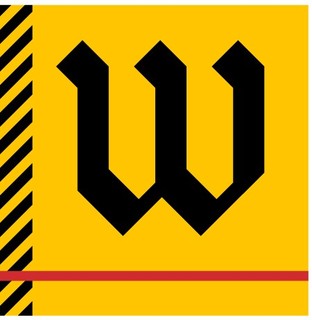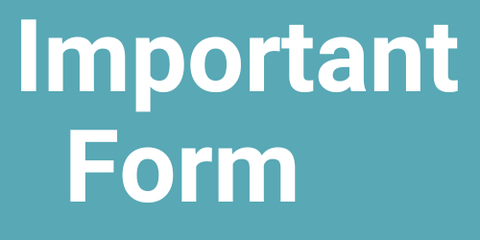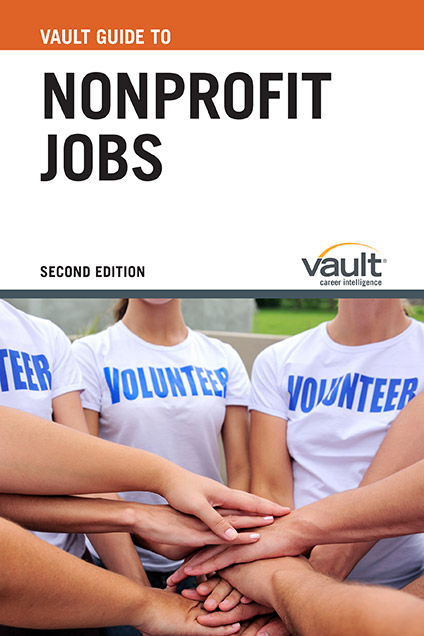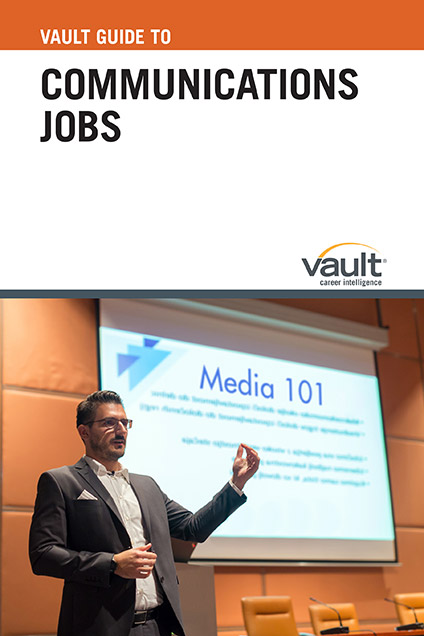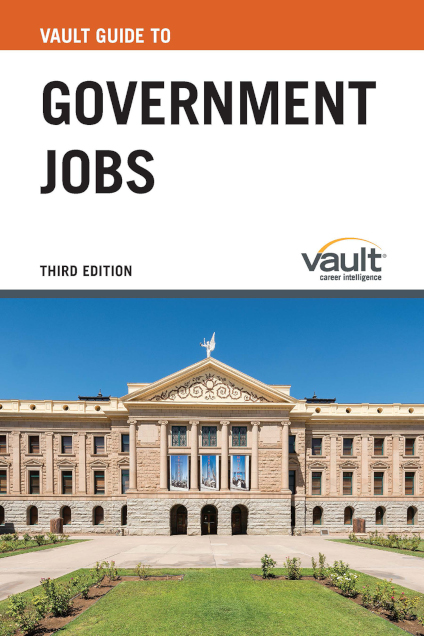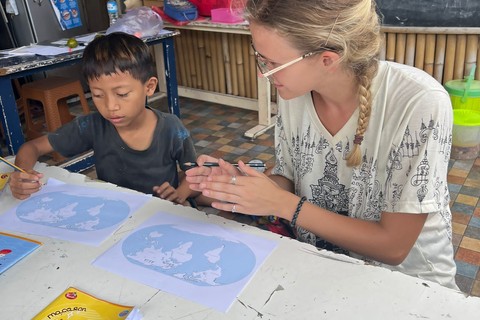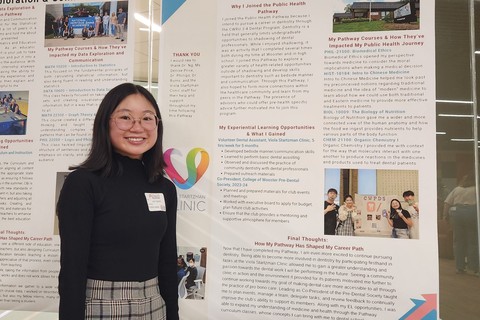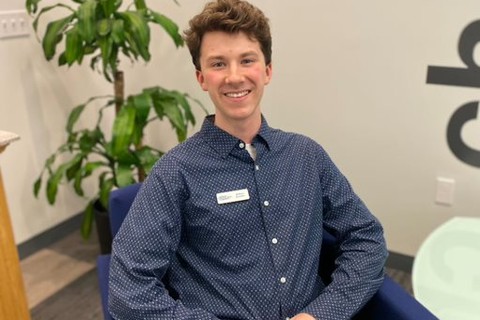

Museum & Archival Studies
Who visits museums? How are collections and archives constructed? What social roles do museums and archives play? Students in this Pathway will explore the diverse traditions of collection, curation, research, display, and preservation.
Students in the Museum & Archival Studies Pathway consider the histories, techniques, and challenges common to the diverse traditions of museums and collections, curation, and preservation practices. From small archives to large national collections, difficult dialogues surrounding justice and equity with respect to objects, collections, and accessibility are taking place at greater frequency. The Pathway seeks to promote and support a wide range of voices and to prioritize non-western contexts in decolonizing collections and institution. To this end, courses may also focus on specialized theoretical approaches to address histories of collection, teaching, and display, but also to confront issues of ownership, cultural patrimony, colonialism, and ethics.
Students who choose this Pathway might expect to:
- Build on critical understandings of the organization of arts, material culture, and science institutions
- Explore controversial aspects of history, culture, and identity
- Develop skills in information and collection management
- Learn about conservation and preservation techniques
Careers associated with this pathway include an extraordinary array of disciplinary perspectives in the arts, humanities, social sciences, and natural sciences. They include, but are not limited to:
- Archival Science & Ethics, Documentary & Digital Preservation
- Library Science & Education
- Museum Studies & Curation (including Natural History, from botany to biology and paleontology to zoology)
- Public History
- Specialized Collections
- Digital Collections & Display
- Fine Arts
- Museum Education
- Museum & Gallery Management
- Corporate Collections Management
- Art Acquisition and Dealership
- Collection/Display Design & Ethics
- Cultural Patrimony & the Law
- Preservation & Conservation
- Archaeological Analyses
- Archaeological Ethics
Take three (3) courses fitting the following descriptions.
Students are required to complete three courses (from different departments) from the approved list below.
Some important provisions:
- Students may complete courses from multiple Interest Categories, provided that these decisions are made in consultation with a Pathway advisor, and that the student articulates the reasons for these selections in a written reflection.
- Courses in the Pathway can count toward graduate requirements (including those requirements within a major and/or minor)
- Students are encouraged to complete coursework outside of an intended major or minor
Completed coursework from the approved list below will be automatically applied toward the Museum & Archival Studies Pathway requirements in your degree audit, which you may view in Colleague Self-Service.
If you see a course that is of interest to you and that you think fits into one of these areas, please suggest it to the Museum & Archival Studies Pathway program team. If approved, that course can count toward your MUSE Pathway program.
Anthropological Museums
Approved coursework in this interest area provides students with guided opportunities to understand how human cultures, histories, communities, and identities are (and are not) represented in museums. Students completing coursework in this area may also identify legal and ethical issues in ethnographic collections and displays.
- ANTH 11000: Introduction to Anthropology
- ANTH 21107: Museum Anthropology*
- MUST 21100: Museums & Political Conflict*
- RELS 26925: Religious Visual & Material Culture
- RELS 26740: Buddhist Visual & Material Cultures
- RELS 26745: Materiality and Spirit
Archaeology, Cultural Patrimony & Ethics
These are courses that encourage students to explore the methods, techniques, and reasoning employed to reconstruct and interpret past societies out of material and visual records. Ethical questions should arise for students completing coursework in this area surrounding the religious, social, political, economic, and cultural conditions of representation and discovery.
- ARCH 10300: Intro to Archaeology
- ARCH 21900: Special Topics in Archaeology (selected courses must be approved by Pathway Team)
- ARCH 35000: Archaeology Method and Theory*
- ARTH 22000: African Art* (when it includes a course embedded exhibition)
- ARTH 20800: Global Renaissance* (when it includes a course embedded exhibition)
- ARTH 33000: Exhibiting Africa: Art, Objects & Bodies*
- EAST 11000: Introduction to East Asia
- RELS 26734: Ancient Arabian Religions
Archives, Libraries & Collections: Curation & Preservation
Coursework in this interest area allows students to engage with histories and methods of curating & preserving written, visual, physical, and digital texts.
- ARTH 31800: History of Prints* (with or without EL course embedded exhibition)
- ENGL 23007: Nineteenth Century British Literature
- ENGL 23040: Global? Book? History?
- FYS 10100: Grow a Spine: Arts of the Book
- IDPT 19916 Introduction to Digital Humanities
- RELS 26740 Buddhist Visual & Material Cultures
- THTD 10100: Theater Research and Writing
- THTD 25200: Origins of Drama
Visual Arts Museums: Curation, Conservation & Education
- ARTH-22000: African Art (when it includes a course-embedded exhibition)
- ARTH 29902: Global Renaissance* (when it includes a course-embedded exhibition)
- ARTH 31800: History of Prints* (with or without EL course embedded exhibition)
- ARTH 33000: Exhibiting Africa: Art, Objects & Bodies*
- ARTH 38900: Theory & Application in Art History*
- ARTS 15300: Introduction to Painting*
- ARTS 15500: Intro to Printmaking
- ARTS 15900: Intro to Photography
- ARTS 16300: Intro to Ceramics
- RELS 26925: Religious Visual & Material Culture
- RELS 26740: Buddhist Visual & Material Cultures
- RELS 26745: Materiality and Spirit
- MUST 21100: Museums & Political Conflict
Natural History Museums: Curation, Conservation & Education
Approved courses related to museums of natural history should contribute to students’ applied understandings of evolutionary history and ecology. Students should draw ideas from this coursework on how to incorporate such understandings into the curation, conservation, and education of natural history.
- ARTH 39900: Exhibiting Africa: Art, Objects & Bodies*
- BIOL 31100: Natural History of the Vertebrates*
- BIOL 32300: Natural History of the Invertebrates*
- BIOL 34000: Field Botany*
- BIOL 35000: Population and Community Ecology*
- BIOL 35600: Conservation Biology*
- BIOL 39900: Plant-Insect Interactions*
- ESCI 10000: History of Life
- ESCI 19901: GIS Basics
- ESCI 21500: Paleoecology*
Public History, Digital & Material Collections, & Display
Approved coursework in this interest area should help students imagine how displays of histories, traditions, and cultures are produced, distributed, and received in various forms. Students may be challenged to consider legacies of conquest, colonialism, and other political or economic influences in working with original historical materials.
- EAST 11000: Introduction to East Asia
- ENGL 23040: Global? Book? History?
- GMDS 11000: Introduction to Global Media & Digital Studies
- GMDS 21000: Global Media*
- HIST 20124: Public History*
- HIST 23100: The Making of Africa
- HIST 23200: Africa from Colonization to Globalization
- HIST 23400: Chinese Civilization
- HIST 23500: Modern China
- HIST 23600: Modern Japan
- HIST 29800: Making History: Theory & Methods
- THTD 10100: Theater Research & Writing
- THTD 25200: Origins of Drama
*Course has pre-requisite or requires instructor permission to register
PATH 11003: Initial Reflection
This course asks you to complete three basic steps:
- Spend time reflecting on several questions about why you’ve chosen this Pathway.
- Discuss your thoughts with other Activism students, faculty, and staff.
- Write about how your initial thoughts, the conversations you had with your Pathway community, and any new or different insights you have as a result.
PATH 22003: Career Planning
For this course, you will explore career and internship resources offered through Career Planning in APEX, specifically Handshake and Fighting Scots Career Connections. You will also craft a career-ready resume. We strongly encourage you to take advantage of the many resources offered by the Career Planning office to bring your resume to a truly professional level. Booking an appointment with a Career Planning staff member or peer advisor to go over your resume is strongly recommended.
PATH 33003: Experiential Learning
This course asks you to complete an authentic, hands-on experience in one of the career areas you’re exploring. It is more than simply having an experience, however. In order to maximize the benefits and learning you gain, you will deliberately walk through goal setting, planning, and “preflection” (pre-reflection) before you complete the career experience. During and after your experience, you will spend time considering what you learned about yourself from the experience and how those lessons might impact your next career steps. Completing this thorough, guided process is what makes this “experiential learning” rather than just an experience.
**Note that this course will require you to complete some components BEFORE registering**
Steps to complete PATH 330:
Before Registering:
- Explore a range of possible experiences that will help you further your career goals.
- Plan your EL experience, taking advantage of resources and assistance offered by faculty or staff on the Pathway team, someone from APEX’s Experiential Learning & Community Engagement Office, Wooster alumni working in the career field, and/or your own connections in the field.
- Complete the EL Approval Form & gain official approval from your Pathway faculty/staff team.
During the Course:
- Complete your EL experience (can be done before or during PATH 330).
- Upload your EL Verification Form.
- Submit your post-EL reflection.
PATH 44003: Final Reflection
When you’ve completed all the elements of the Pathway – PATH 110, 220, 330 and your chosen topical courses – you will reflect on your total Pathways experience with questions like: What did the topical courses teach you that are relevant to this career area? What are the career lessons from your experiential learning experience(s)? How did your perceptions of this career area and your place in it shift over time and where have they landed for now? When you step back and look at the bigger picture of your Pathways experience, in what ways are you stronger and more prepared to take your next career steps?
You will present your reflections publicly, which both encourages significant reflection and benefits those who are coming behind you on their own career journeys. Generally, students will do this by presenting a poster at a college event. You will also need to update your resume with all your Pathway experiences and create or update your LinkedIn profile.
Students in the MUSE Pathway are required to complete one (1) EL opportunity.
Students are required to complete at least one experiential learning opportunity.
EL opportunities in the Museum & Archival Studies Pathway should:
- be a substantial/sustained off-campus internship, work experience, or volunteer opportunity
- be in the area of your interest and goals
- provide hands-on experience working with digital, written, or visual materials
- additional criteria included in EL Approval Form
Some important provisions:
- EL-credentialed courses can not count both toward Pathways course requirements and as an EL opportunity.
- Students must spend a minimum of 45 hours participating in their EL experience.
Example EL opportunities for the Museum & Archival Studies Pathway
On-campus EL opportunities, including the following:
- Museum Assistant (College of Wooster Art Museum)
- Library Assistant, Special Collections (College of Wooster Libraries)
- Digital Curation Assistant (College of Wooster Libraries)
- Wooster Digital History Project [see below for more information]
- Digital Lab (College of Wooster Art Museum)
- Research Assistant positions with College faculty/staff – these change each semester — talk with your professors/supervisors about possible opportunities
General off-campus experiences could be:
- Work experience off-campus
- Internships off-campus
- Internships on-campus
- Field Research
- Volunteer work such as docent and museum education or outreach Shadowing Experiences with Alumni
- Related off-campus study programs
Planning your EL:
- Read through the EL Approval Form and any other EL guidelines provided by your Pathway.
- Develop an idea about the type of experience you’d like to do and when you’d like to do it. Find experiences that might work for you. Some ways to do this:
- Look at internship organizations and listings on this website.
- Search Handshake and other job posting sites
- Ask other students, faculty, and staff in your Pathway for ideas
- Meet with someone from the Experiential Learning & Community Engagement Office in APEX to talk through ideas that fit your specific goals (and possible funding opportunities)
- Meet with the Pathways Program Coordinator or your Pathway’s Peer Advisor to discuss ideas
- Create a list of the most exciting 2 or 3 opportunities you’ve found
- Meet with someone from your Pathway’s faculty/staff team to choose one and get unofficial approval for the experience
- Apply for the experience.
- Once you’ve been accepted, review the EL Approval Form again and carefully collect all the required information.
- Fill out and submit your EL Approval Form.
- Once you’ve gotten approval for your EL, you can register for PATH 330.
Important EL Forms:
EL Approval Form: complete after planning your EL, before doing the EL. Submit through MS Forms.
EL Verification Form: done by you and your EL supervisor at the end of your EL. Submit as part of PATH 330 work.
Required Training
- None Currently



